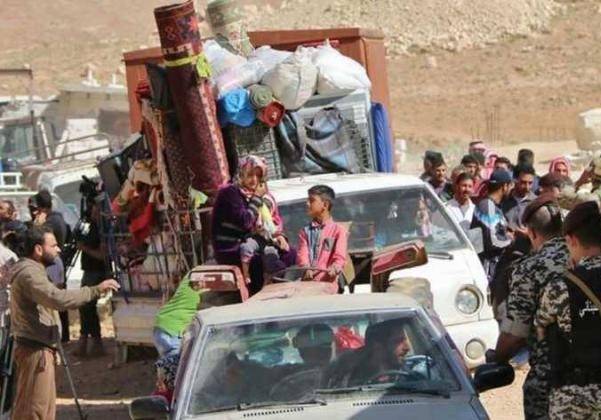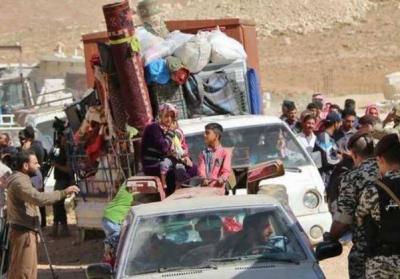Following the outcomes of Cypriot President Nikos Christodoulides' visit to Beirut, Foreign Minister Abdullah Bou Habib began similar discussions in Athens during a previously scheduled work visit that had kept him from attending Christodoulides' recent visit to Lebanon. There, he met with Greek Foreign Minister Georgios Gerapatrits to continue discussions on several common issues.
During the visit, the Cypriot president and Lebanon agreed on Christodoulides' initiative to encourage the European Union to establish a practical framework with Lebanon, similar to what has been achieved through agreements between the EU and both Egypt and Tunisia. This could lead to the Lebanese government receiving additional necessary aid and provide incentives for Syrian refugees to return to their homeland. The same topics were on the agenda for Bou Habib and Gerapatrits as they exchanged views concerning the ongoing war in Gaza and the situation in southern Lebanon. They also discussed enhancing cooperation on issues of displacement and illegal migration across the Mediterranean, as reported by "Al-Jumhouria."
Bou Habib emphasized after the meeting the importance of reinforcing historical relations with Greece, given the increasing interest among Lebanese to invest commercially and in real estate in Greece. He also highlighted the interconnectedness of the Mediterranean shores with a saying: "If Lebanon and the eastern Mediterranean catch a cold, the Mediterranean European neighbors will get infected." They agreed on the comprehensive application of United Nations Security Council Resolution 1701, which seeks to achieve stability and calm in southern Lebanon. He reiterated that Lebanon does not desire war, which, if it occurs, would explode across the entire Middle East.
In a statement addressing the European community from Athens, Bou Habib noted that the displacement crisis has spiraled out of control due to the lack of sustainable solutions, surpassing Lebanon's capacity to bear it. The crisis is now knocking on Cyprus's doors, and possibly Greece's as well. Hence, similar countries like Lebanon, Greece, and Cyprus must work together to change EU policies towards assisting the return of displaced persons to Syria and supporting them in rebuilding their destroyed villages and towns. He stated that Greece is ready to convey Lebanon's voice to the European Union, support its demands, and consider its concerns.
On the regional front, Bou Habib confirmed an agreement with his Greek counterpart on the immediate importance of a cease-fire in Gaza, protecting paramedics and civilians, delivering humanitarian aid, and implementing a two-state solution to end the instability plaguing the Middle East for decades.
Consequently, diplomatic sources told "Al-Jumhouria" that Lebanon will respond similarly to European measures in an effort to provide a new framework for addressing the displaced persons issue, which has become more complex due to recent Syrian aggressions, including the murder of the Lebanese Forces coordinator in Jbeil, Pascal Suleiman. The aim is to establish a formula affirming that Europe does not alone bear the burden of displacement, considering the severe suffering of the Lebanese, which has reached critical levels threatening security if aggressions continue at their current alarming pace in various regions, especially since acknowledging the existence of safe areas in Syria and the necessity for the return of displaced persons to them.
These sources indicated that the diplomatic campaign led by Lebanon has begun to bear fruit, and that the conference scheduled for late May in Brussels to discuss the Syrian refugee crisis will witness new steps if Greece and Cyprus succeed in bridging viewpoints and promoting Lebanese plans among EU member states according to "Al-Jumhouria."




